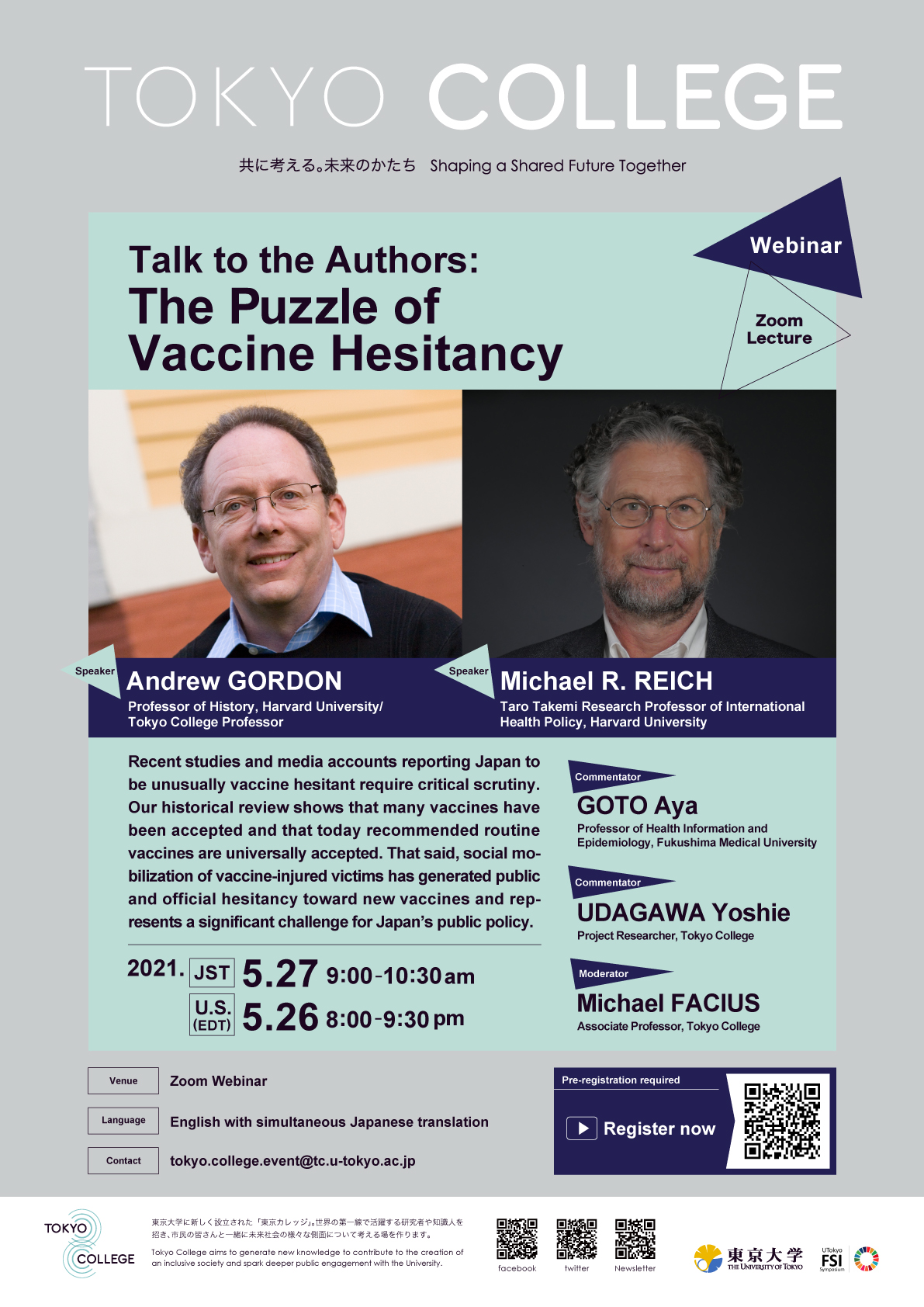Talk to the Authors: The Puzzle of Vaccine Hesitancy || by Prof. Andrew GORDON & Prof. Michael R. REICH

| Date(s) | Thursday, 27 May 2021, 9:00-10:30 am (JST) / Wednesday, 26 May 2021, 08:00-09:30 pm(EDT) |
|---|---|
| Venue |
Zoom Webinar (Register here) |
| Registration | Pre-registration required |
| Language | English with simultaneous Japanese translation |
| Abstract |
Recent studies and media accounts reporting Japan to be unusually vaccine hesitant require critical scrutiny. Our historical review shows that many vaccines have been accepted and that today recommended routine vaccines are universally accepted. That said, social mobilization of vaccine-injured victims has generated public and official hesitancy toward new vaccines and represents a significant challenge for Japan’s public policy. |
| Program |
Presentation By Andrew GORDON Presentations By Michael R. REICH Comments Discussion Q&A |
| Speaker Profile |
Speakers: Andrew GORDON (Professor of History, Harvard University/Tokyo College Professor) Michael R. REICH (Taro Takemi Research Professor of International Health Policy, Harvard University)
Commentators: GOTO Aya (Professor of Health Information and Epidemiology, Fukushima Medical University) UDAGAWA Yoshie (Project Researcher, Tokyo College)
Moderator: Michael FACIUS (Associate Professor, Tokyo College) |
| Organized by | Tokyo College, The University of Tokyo |
| Contact | tokyo.college.event@tc.u-tokyo.ac.jp |

















